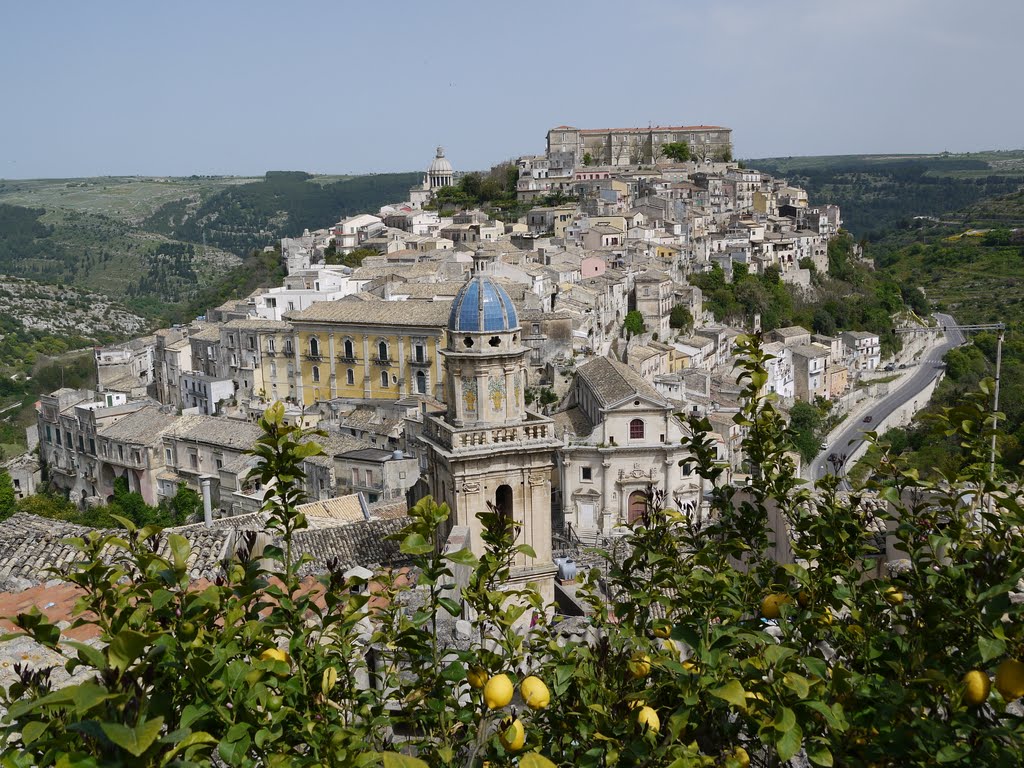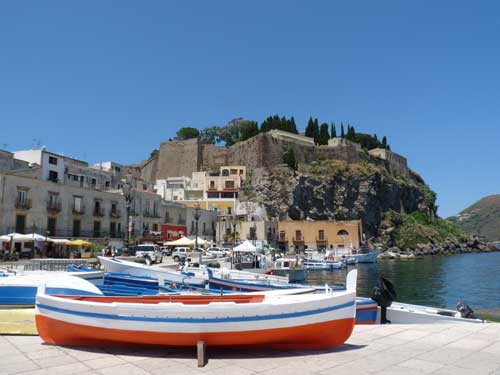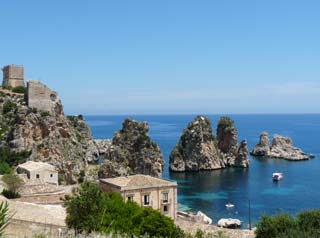Sicily (Sicilia) is more than just an Italian region: it’s an island with an ancient and fascinating history, famous for its colourful character. The football that is being kicked by Italy’s boot, Sicily lies to the south of the country and just a short distance from the African coast. A long history of invasion and conquest has resulted in a rich and varied heritage: Greek, Arab, Roman, Norman. This wide range of influences can be detected in the island’s architecture, landscape and culture, and has blended to make Sicily a truly unique destination.
- Sicily destinations and practicalities: full menu (at foot of this page)
Equally important has been the land’s predisposition to natural disasters. Mount Etna, in the eastern part of the island, is Europe’s highest and most active volcano. Sicily is also subject to earthquakes and extreme weather conditions. A devastating earthquake in 1693 destroyed the south-eastern towns, which were rebuilt in a Baroque style. Nature, disaster and mystery go hand-in-hand in Sicily – when I was first writing these pages, there was a news story about both geologists and exorcists being brought in to investigate mysterious fires affecting electrical wires and appliances in a village near Messina.

Sicily’s pastries and desserts (dolci) are famous for their richness, and stuffed with ingredients like marzipan and ricotta. Among the treats are cannoli (thin tubes stuffed with ricotta, chocolate or candied fruit). In the Sicilian heat welcome specialities are the area’s fine ice cream and the refreshing drink granita di limone (ice and lemon slush). For a long time Marsala was Sicily’s most well-known wine, but nowadays many Sicilian vineyards, some of them on the volcanic slopes of Etna, are making a mark internationally.
Despite Italy’s anti-corruption drives of the past decades, the Mafia is still a reality that most prefer not to discuss. It’s unlikely to have any noticeable impact on your stay, however. Petty crime, as elsewhere in Italy, is more of a risk for tourists, so take sensible precautions in cities.
Sicily airports and travel: Sicily has a choice of airports, including the busy city airports of Catania and Palermo. This is helpful for planning a holiday with efficient travel connections, and also means you may be able to tour the island flying into one airport and out of another. From mainland Italy you can take a ferry or the train. Train carriages are rolled onto boats to cross the Strait of Messina. Approximate journey time Rome-Taormina is 8 hours. Sicily is a large island; towns are connected by train and bus services, but be prepared to spend significant lengths of time on the move if you want to see the whole region.

Sicily tourist destinations
Sicily is a good destination for a touring holiday – allow at least a week, and preferably longer, for travelling around and getting a flavour of the main tourist destinations. One of Sicily’s leading holiday destinations is Taormina, a fashionable resort with beaches nearby, a fine Greek theatre and a stylish film festival (in June). One of the classical world’s most important legacies can be seen at Agrigento‘s Valley of the Temples. The hilltop town of Enna is inland, set at the heart of Sicily, and offers a different perspective on the island. Palermo, the regional capital, is one of Italy’s largest cities; chaotic but with many sights of interest. Over to the south-east, the Baroque city of Catania, birthplace of the composer Bellini (remembered in the Museo Civico Belliniano), is worth a visit, and makes a good base for the lion-hearted who wish to visit Etna. Siracusa, perhaps better known as Syracuse, was an important Greek town, home to Archimedes. Its Greek theatre still stands, and classic dramas are performed here each year.
